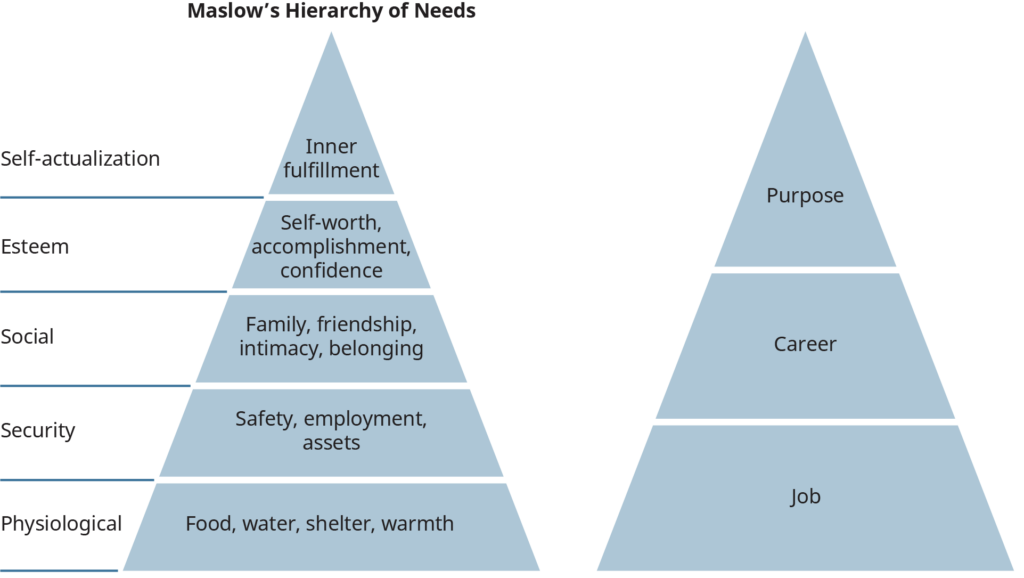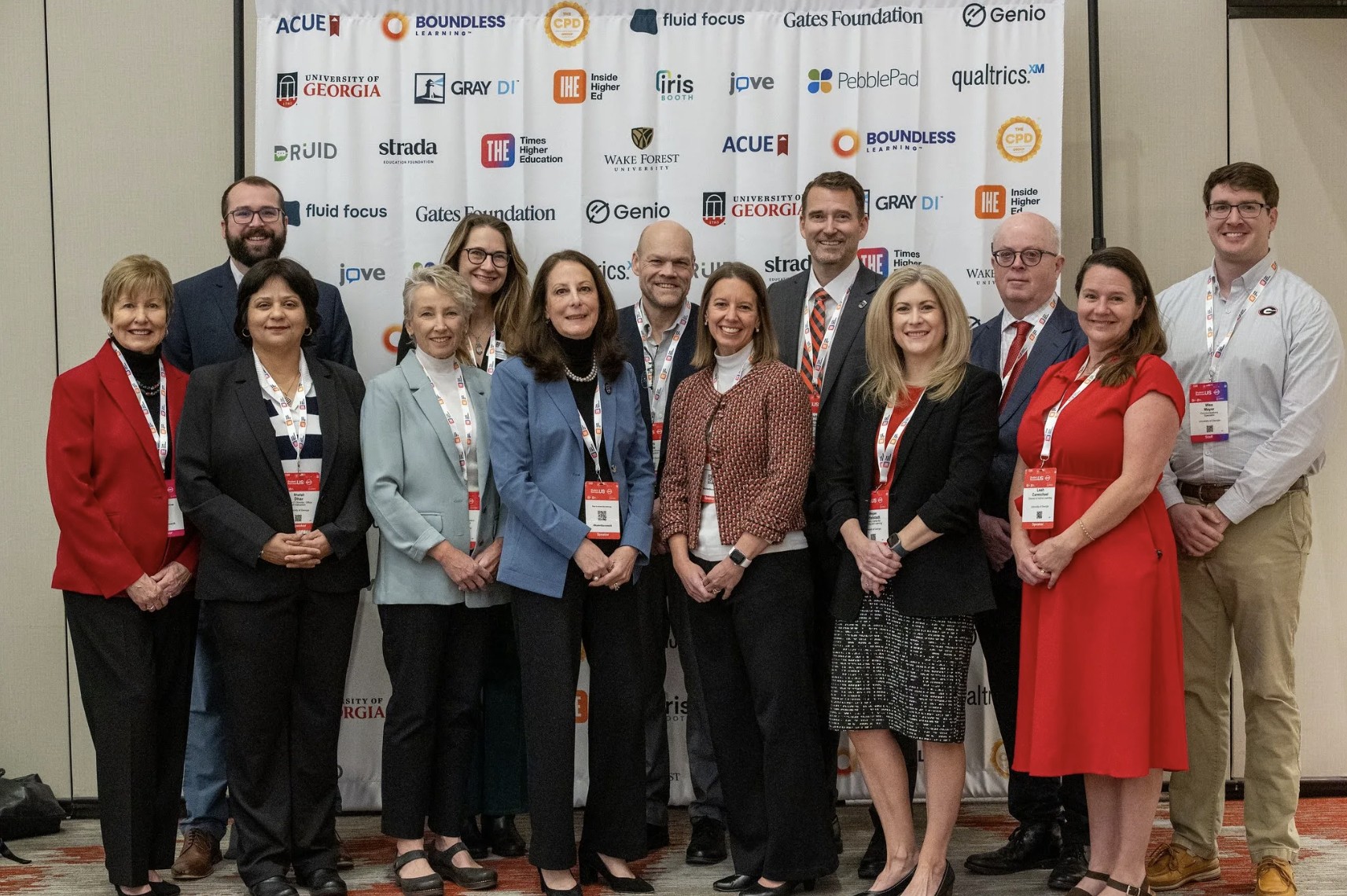In psychology, advertising, education, and other disciplines, researchers and professionals use a concept called Maslow’s Hierarchy of Needs. In essence, it’s a progression that starts with satisfying our most basic, physical needs (food, shelter) and moves through our more social and societal needs (cooperation, belonging) to our highest needs—feeling fulfilled and complete. (This brief description oversimplifies a rather detailed theory.)
Given this base introduction, consider how Maslow’s theory applies to your future. At the bottom, your most basic needs are fulfilled by a job. It pays the bills, keeps you secure, and puts food on your table. At the next level is your career. Your career is more consistent; you invest more in it and probably are more heavily rewarded. In your career, you’ll likely build up relationships over time, both professional and personal, creating a sense of community and belonging. Some people will come to associate you with your career, and you may feel partly defined by it. But it likely won’t fulfill you all on its own.
At the highest level, the level that allows you to become more fulfilled and complete, is your purpose. That’s the piece you strive for, the piece that helps you navigate your path. It’s what you may see yourself still moving toward in a later part of your life. It’s what you most want or even need to accomplish.

This adapted version of Maslow’s hierarchy aligns different aspect of your pathway with the different levels and type of needs we have as humans.
Just as you’ll likely have more than one job and even more than one career, you will have more than one purpose. You will even have them at the same time. You can be 100% driven to be the best possible therapist and 100% driven to be the best possible older sibling, all while being 100% driven to continually deepen your knowledge of yoga. Your time and your focus will be split between them, but they will still each fulfill you. As you get older and gain experiences, both positive and negative, your priorities may change. But you’ll be successful as long as you adhere to the principles we’ve discussed and the qualities, values, and abilities you’ve identified in yourself. College offers you the opportunity to keep asking yourself the best, most challenging questions, all while you have many people dedicated to helping you find the answers. Those answers may surprise you, but the important thing is to keep asking and keep learning.
This material is from College Success – an Openly Licensed textbook on how to succeed in college. Chapter 12.




